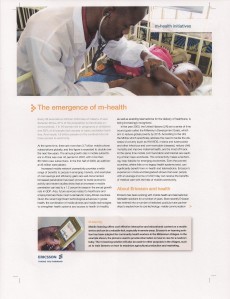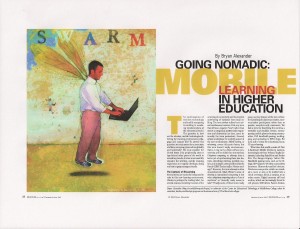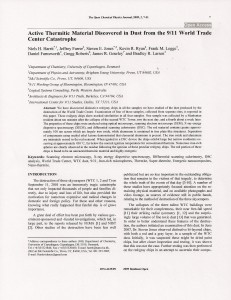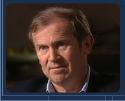The United Nations is pioneering the use of mobile telephones to collect health-relevant data, others are pioneering the use of mobile devices to deliver health learning to both health providers and health consumers.

I will not replicate all that is at www.oss.net and to a much lesser extent, www.earth-intelligence.net, but do want to recognize a handful of extraordinary individuals by isolating their especially meritorious contributiions to the long-running debate about national intelligence reform and re-invention.

2004
EDUCAUSE Review, vol. 39, no. 5 (September/October 2004): 28–35.
The combination of wireless technology and mobile computing is resulting in escalating transformations of the educational world. The question is, how are the wireless, mobile technologies affecting the learning environment, pedagogy, and campus life? To answer this question, we must assess the current state of affairs, surveying cyberculture globally and historically.1 We must consider the United States only peripherally, since it lags behind other parts of the world in several key trends. And we must carefully examine the wireless, mobile learning experience as it rapidly develops, doing our best to grasp emergent trends.
Concluding sentence:
Based on these observations, we conclude that the red layer of the red/gray chips we have discovered in the WTC dust is active, unreacted themite material, incorporating nanotechnology, and is a highly energetic pyrotechnic or explosive material.

Arno Reuser, one of a tiny handful of lifetime leaders of the new disciplines of Open Source Intelligence (OSINT) and its public service manifestation, Public Intelligence in the service of Collective Intelligence, contributed the below piece in 2008. It is a standard reference. Below is the summary followed by a link to the full-text article online. Summary: Searching for information in order to solve somebody's information problem requires a wide range of skills, methods, capabilities, and knowledge of sources. In other words, it requires strategy and tactics. Unfortunately, many customers think that a simple connection to the Internet and one general-purpose search engine is more than enough to do the trick. Luckily, the well-framed end user knows better, but librarians are often challenged by budget holders and higher management to explain why the Internet is not the ultimate solution for every conceivable information problem. To confront this challenge, the author presents six simple aspects of Internet bias: 1. The Internet is not international. 2. The Internet is not easy. 3. The Internet is not just Google. 4. The Internet is not large. 5. The Internet is not objective. 6. The Internet is not anonymous. Skilled librarians or information professionals can outperform the Internet in many occasions. In the information world, librarians rule. The problem is, they are too modest.

EMPHASIS: The larger result of this cynical behaviour is a widespread moral and mental collapse that is rapidly transforming our experiment in building a government of the people, by the people, and for the people into a sham that is more like a 21st Century corporatist mutation of 18th Century court of Louis XVI.
Viewed retrospectively, the political economy of Versailles on the Potomac admits to only two stages in the life cycle of any government program, be it defense, a bailout of the banks, healthcare reform, or anything else: (1) It is too early to tell, and (2) it is too late to do anything about it.
Nowhere is the decision-making conundrum implied by these stages more clearly evident than in the Military – Industrial – Congressional Complex, MICC, particularly in the acquisition of high tech weapon systems, but also in the decision to go to war.
Continue reading “Journal: Chuck Spinney on Moral and Mental Collapse of the Federal Government”

SICK and WRONG: How Washington is Screwing Up Health Care Reform – and Why It May Take a Revolt to Fix It
Let's start with the obvious: America has not only the worst but the dumbest health care system in the developed world. It's become a black leprosy eating away at the American experiment – a bureaucracy so insipid and mean and illogical that even our darkest criminal minds wouldn't be equal to dreaming it up on purpose.
The system doesn't work for anyone. It cheats patients and leaves them to die, denies insurance to 47 million Americans, forces hospitals to spend billions haggling over claims, and systematically bleeds and harasses doctors with the specter of catastrophic litigation. Even as a mechanism for delivering bonuses to insurance-company fat cats, it's a miserable failure: Greedy insurance bosses who spent a generation denying preventive care to patients now see their profits sapped by millions of customers who enter the system only when they're sick with incurably expensive illnesses.
The cost of all of this to society, in illness and death and lost productivity and a soaring federal deficit and plain old anxiety and anger, is incalculable – and that's the good news. The bad news is our failed health care system won't get fixed, because it exists entirely within the confines of yet another failed system: the political entity known as the United States of America.
Just as we have a medical system that is not really designed to care for the sick, we have a government that is not equipped to fix actual crises. What our government is good at is something else entirely: effecting the appearance of action, while leaving the actual reform behind in a diabolical labyrinth of ingenious legislative maneuvers. [Emphasis added.]
STEP ONE: AIM LOW
STEP TWO: GUT THE PUBLIC OPTION
STEP THREE: PACK IT WITH LOOPHOLES
STEP FOUR: PROVIDE NO LEADERSHIP
STEP FIVE: BLOW THE MATH
As Rolling Stone’s chief political reporter, Matt Taibbi's predecessors include the likes of journalistic giants Hunter S. Thompson and P.J. O'Rourke. Taibbi's 2004 campaign journal Spanking the Donkey cemented his status as an incisive, irreverent, zero-bullshit reporter. His latest collection is Smells Like Dead Elephants: Dispatches from a Rotting Empire

Secrecy: The Nation's Favored Fraud
Pierre Tristam
Published on Tuesday, November 26, 2002 by the Daytona Beach News-Journal (Florida)
If there is any doubt at all that the terrorists have won – that they have managed with a single day's freakish hits to revamp the most open society on earth into an emerging police state where suspicion and secrecy are the twin watch-towers of government and cowering and conforming the prevailing instincts of an allegedly free press or an even more alleged political opposition – then last week's creation of the Department of Homeland Security should put all such doubts to rest.
. . . . . . .
Secrecy is national security's favored fraud. With rare exceptions, it harms the public interest more than it protects it. Keeping America's atom bomb secret may have been a good idea, but even that failed. Keeping the Pentagon Papers secret, the government's own most damning evidence that the Vietnam War was a known failure even in the early 1960s, needlessly prolonged a needless war at the cost of thousands of American lives (and perhaps a million Vietnamese). Designed around the same principle of prescribing what Americans should and should not know, the new department will incubate just such secrets, covering up what should be known at the risk of prolonging what shouldn't be happening. Substitute Main Street for rice paddies and what's ahead is less reassuring because of the department's existence.
Phi Beta Iota: We testified to the Moynihan Commission, and all of our life's work in the world of secrecy confirms the views of Rodney McDaniel, thenExecutive Secretary of the National Security Council: 90% (we say 80%) of secrecy is bureaucratic turf control (and avoidance of accountability), only 10% (we say 20%) is legitimate portection of sensitive information.